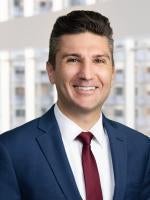On June 28, 2023, the U.S. Department of Justice (“DOJ”) and the U.S. Department of Health and Human Services, Office of Inspector General (“HHS-OIG”), along with other federal and state law enforcement partners, announced a nationwide health care fraud enforcement action targeting a variety of alleged health care fraud schemes. As has been the case over the last few years, DOJ and HHS-OIG have moved away from categorizing the enforcement action as a “takedown”. The government has not explained the naming change, but one explanation is that it is no longer properly considered a true “takedown” because the enforcement activity (charges, arrests) occurs over many weeks leading up to the day it is announced.
As usual, this year’s enforcement action does not focus exclusively on one type of alleged scheme, but rather is an amalgamation of distinct types of alleged health care fraud, packaged together as a coordinated effort. This year, the enforcement action focused on telemedicine, pharmaceuticals, opioids, durable medical equipment (“DME”), clinical laboratories and COVID-19-related conduct. All of these types of alleged schemes have been on DOJ’s radar for a number of years; see, for example, 2019’s Operation Double Helix and Operation Brace Yourself. Regardless, the broad array of types of alleged schemes targeted this year demonstrate that DOJ’s efforts continue to be wide-ranging, and no particular health care fraud scheme is the overwhelming focus.
The 2023 enforcement action charged 78 defendants who allegedly have committed over $2.5 billion in fraud. Cases were brought in 17 different federal district courts and in three state courts.
The wide swath of allegedly illegal conduct targeted is illustrative of the fact that according to law enforcement, no health care fraud scheme is too large or too small, and everything is fair game in an effort to protect federal and state health care programs and their beneficiaries. Attorney General Merrick B. Garland noted that this enforcement action included “one of the largest health care fraud schemes ever prosecuted by the Justice Department,” an alleged software and telemarketing scheme involving medically unnecessary DME in the Southern District of Florida. This alleged scheme billed $1.9 billion in claims to Medicare and other government insurers.
As is often the case with health care fraud, the government press releases focus on the “bling” – the lavish goods the alleged bad actors purchased with federal health program dollars. For example, the DOJ press release notes that defendants purchased “exotic automobiles, jewelry, and yachts” with the proceeds of their alleged schemes. This emphasizes DOJ’s belief that those “who put profits above patient care, from professionals in doctors’ offices to executives in corporate boardrooms” will be subject to enforcement. Jeffrey B. Veltri, Special Agent in Charge, FBI Miami echoed this sentiment, noting that the country’s “health care system is under constant attack by fraudsters who are driven by greed. They pilfer billions of dollars from Medicare and other health care benefit programs.”
Of the numerous cases, three specific areas comprised the vast majority of the $2.5 billion in alleged fraud:
Telemedicine Fraud: Similar to the 2019 takedowns, DOJ continues to target telemedicine fraud. In this enforcement action, 11 defendants were charged for their alleged connection to an $1.9 billion fraudulent scheme in the Southern District of Florida (noted above), which involved C-suite executives who were selling DME templates via a software platform in exchange for kickbacks and bribes. These defendants allegedly used telemarketing and advertising to induce elderly and disabled individuals to order unnecessary medical equipment and prescriptions. The defendants allegedly bypassed Medicare requirements of in-person contact by fraudulently generating documentation. Interestingly, this scheme continued after new owners acquired the underlying business. In a separate case, and sticking with the theme of DME fraud, one physician in the Eastern District of Washington allegedly ordered almost 3,000 orthotic braces, with each order occurring in under one minute.
Pharmaceutical Fraud: 10 defendants were charged for a $370 million fraud scheme related to drug diversion. One defendant in this case allegedly paid over $5 million in kickbacks in order to get individuals to submit prescriptions to a pharmacy; such drugs were allegedly never dispensed. The defendant received over $100 million from Medicare and Medicaid.
Opioids and Clinical Laboratories: $150 million of the enforcement action’s total loss amount was attributed to the illegal distribution of opioids and clinical laboratory testing fraud.
Although these alleged schemes are factually unconnected, DOJ continues to combine these seemingly disparate cases together to create a large enforcement action with an eye-popping total loss amount dollar figure that garners attention. This is despite the fact that some individual cases that make up the enforcement action are run-of-the-mill health care fraud, and are often not newsworthy standing alone. For example, one occupational therapist in EDNY allegedly billed for almost $4 million and received $1.6 million for services that were not provided as billed, or in some instances, not provided at all. Another example involved a defendant allegedly billing for more than 24 hours of services in a single day.
| Federal Court | # of Cases | Examples of Allegations |
| Southern District of Florida | 15 | Medically unnecessary DME and prescriptions via telemedicine; adulterated and misbranded medications; medically unnecessary genetic testing; billing for physical therapy services that were not provided or medically unnecessary; medically unnecessary sleep studies |
| District of New Jersey | 9 | Diversion of prescription drugs; kickbacks in exchange for patients’ insurance information to submit false claims |
| Eastern District of New York | 5 | Kickbacks for prescription drugs that were not dispensed; adult day care center paying kickbacks to get patients to enroll without attending the center; occupational therapy services that were not rendered or medically unnecessary |
| Southern District of Texas | 5 | Clinical laboratory kickbacks to marketers for medically unnecessary genetic testing; fraudulent claims related to pediatric dentistry that was not provided or was provided by unlicensed individuals |
| Middle District of Florida | 4 | Fraudulent prescriptions and telemedicine schemes; COVID-19 and PPP fraud; DME kickbacks |
| District of South Carolina | 2 | DME and telemedicine schemes; kickbacks for medically unnecessary DME |
| Eastern District of Washington | 2 | Medical doctors providing orders for genetic testing and DME without doctor-patient relationship; falsifying COVID-19 vaccination cards |
| Southern District of Ohio | 2 | Controlled substances diversion and medically unnecessary drug testing; inflation of services rendered and billing for professional services rendered by a lower-level practitioner at a home health agency |
| Central District of California | 1 | Medically unnecessary chiropractic services |
| District of Idaho | 1 | Opioid distribution |
| Eastern District of Louisiana | 1 | Medically unnecessary DME |
| Eastern District of Michigan | 1 | Billing for medically unnecessary or unrendered psychotherapy services in an adult day care |
| Eastern District of Wisconsin | 1 | Kickbacks to induce signing up for prenatal care services that were never provided |
| Middle District of Louisiana | 1 | Kickbacks for diagnostic testing services, including cancer genetic testing |
| Northern District of Texas | 1 | Medical doctor providing orders for medically unnecessary genetic testing and DME |
| Southern District of Georgia | 1 | Kickbacks related to the purchase and sale of doctors’ orders for genetic testing |
| Western District of Kentucky | 1 | Opioid distribution |
| State Court | # of Cases | Examples of Allegations |
| Indiana | 9 | Opioid and other controlled substances diversion by licensed professionals; practicing medicine without a license |
| Pennsylvania | 2 | False timekeeping records; issuing prescriptions to patients without any contact or communications |
| New York | 1 | Kickbacks related to prescription drug diversion and dispensing black market prescriptions |
While the total loss amount of the alleged fraud tends to increase year over year in DOJ’s health care enforcement actions, what is missing from the government’s narrative is that criminal health care fraud cases tend to produce limited monetary recoveries (by way of restitution, forfeiture, or fines). By contrast, it is civil cases, and in particular those DOJ brings under the False Claims Act, which typically involve larger corporations, that produce the most substantial financial recoveries. Criminal enforcement punishes the perpetrators and is used to deter others from committing similar acts.
We have been following DOJ’s activity in this area over the years, but this year’s “takedown” in particular reinforces that DOJ continues to pursue alleged criminal health care fraud regardless of the industry. Notwithstanding DOJ’s packaging, this enforcement action should remind those who are involved in health care, whether as a practitioner, in the C-Suite, or elsewhere in the field, that appropriate compliance programs and general oversight remain of utmost importance.





 />i
/>i
